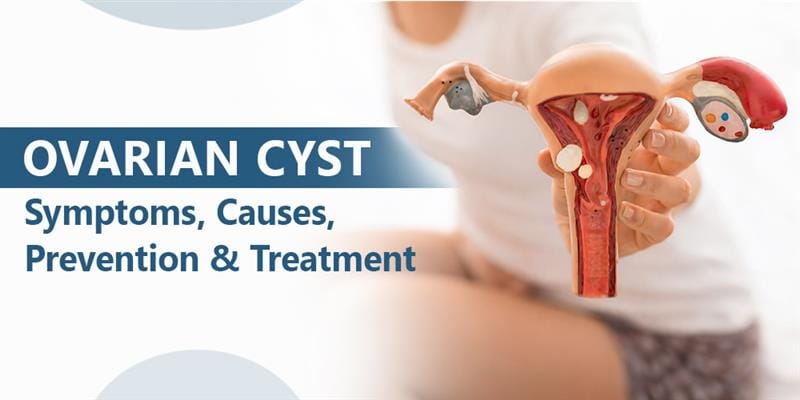You go about your day: work, family, life, and somewhere in the background, your body whispers that something’s off. Not a shout, just a quiet tug: one more pad changed than usual, a fullness in the belly you can’t explain, or the urge to rush to the bathroom once again. These whispers could well be the earliest hints of fibroid growth—and they demand more than just being shrugged off.
This article dives straight into what to watch out for: fibroid symptoms, early signs of fibroids, and uterine fibroid symptoms—all framed for women in India who are ready to make a decision, not just sit and wait.
What Are Fibroids? A Quick Primer
Before we list the signs, here’s a short note on what we’re dealing with. Uterine fibroids (also called leiomyomas) are benign growths in or on the uterus.
- They’re very common. Some studies suggest up to 70 – 80% of women may develop fibroids by age 50.
- Many are silent—no symptoms at all.
- But when symptoms show, they can affect quality of life, fertility, and day-to-day comfort.
For a woman in India, recognising the early signs of fibroids can be empowering—it means you’re already doing something before things escalate.
Why Spot These Early Symptoms?
Simple: early detection gives more options. Smaller growths → less invasive treatments → better fertility preservation → more comfortable life. If you’re already considering options like fibroid treatment in Jaipur or looking up the best gynecologist for fibroids in Jaipur, spotting signs sooner helps tailor the plan rather than rushing into major surgery.
Key Fibroid Symptoms To Keep an Eye On
Here’s a breakdown of the warning lights. If any of these resonate, it’s time to talk to a specialist—whether a trusted gynecologist doctor in Jaipur or your local women’s health clinic.
1. Heavy or prolonged periods
You used to need one pad every 2-3 hours? Now it’s every hour? Periods last more than 7 days? These are classic symptoms of fibroids in women. One study in India found that abnormal uterine bleeding was the predominant symptom in 72% of cases.
Why it matters: heavy bleeding can lead to iron-deficiency anaemia—low energy, dizziness, shortness of breath.
2. Feeling of fullness, bloating, or lower abdomen swelling
It’s like you’ve added a little cushion in your lower belly, and clothes fit slightly tighter. The growth may not always be visible, but you feel “heftier”. Some patients describe it as carrying extra weight in a region they can’t explain.
Why it matters: A fibroid pushing from inside/outside the uterus will press on other organs—bladder, bowel, tummy wall.
3. Frequent urination or bladder pressure
Are you finding yourself rushing to the washroom more often, especially at night? Or you feel the bladder isn’t fully emptied? That’s a sign.
Why: A fibroid may be pressing on the bladder, reducing its capacity or interfering with normal function.
4. Constipation, pressure on the bowel
Just as the bladder can be affected, the bowel can be too. If you feel like you’re always straining or have altered bowel habits and cannot attribute it to diet, take note.
Why: A large fibroid at the back of the uterus may press on the rectum/colon region and create these symptoms.
5. Pain during sex or persistent pelvic/lower-back ache
Do you often feel an ache in your lower back, hips, or pelvis that doesn’t seem to go away? Discomfort or pain during intercourse (dyspareunia) is another red flag.
Why: Growths may interfere with uterine positioning or press on nerve/ligament structures.
6. Changes in menstrual cycle: longer, heavier, irregular
If your cycle used to be predictable and now it’s longer, has more cramps, or varies significantly — that shift may be tied to fibroid growth.
7. Fatigue, anaemia symptoms
Heavy bleeding can lead to a low red blood cell count. Fatigue, paleness, and shortness of breath—all possible downstream effects.
8. Fertility issues, miscarriage, pregnancy complications
Less common, but significant: if you’re facing infertility, recurrent miscarriage, pre-term labour, or malpresentation of the baby, fibroids might play a role.
Tailored for Indian Women: What We Should Know
- In India, fibroids are under-discussed. Many women silently adapt to heavy periods, bloating, or pain, thinking it’s “just me”.
- One Indian clinical study found the most common age group was 31-40 years (34.9%), and symptoms like abdominal lump (41%) and abnormal uterine bleeding (24.1%) were present.
- When thinking of gynecologist in Jaipur for fibroids, choose one who listens, understands the impact on work/family/pregnancy plans, and offers a tailored plan.
When Should You See a Gynecologist Doctor in Jaipur?
If you notice any of the above signs persistently (not just once, but recurring), it’s time to seek a consultation. Some checkpoints:
- Heavy bleeding significantly affecting your life (clots, soaking through pads, lasting > 7 days)
- New-onset bloating/fullness in lower belly
- Urinary or bowel symptoms unexplained by diet or infection
- Painful intercourse or pelvic/back pain not attributable to posture/injury
- Fertility or pregnancy concerns
- Signs of anaemia (dizziness, paleness, fatigue)
When you do go, prepare: note the symptoms, their onset, how often they occur; mention if you have a family history of fibroids; state your fertility plans/time frames (if relevant). This helps the specialist tailor the path.
Basic Stats
- Globally, fibroids are extremely common—estimates suggest up to 70 – 80% by age 50.
- In Indian studies, incidence rates of fibroids range broadly; one report lists ~21.6% (age 26-35), ~33.9% (36-45).
- The Indian study in the 31-40 age group found fibroids in ~34.9% of women studied.
These numbers underscore the importance: it’s not rare, you’re not alone, and it’s both addressable and manageable.
What Comes After Detection? (A Word on Treatment)
Once fibroid symptoms are identified and confirmed (typically via ultrasound, MRI, clinical exam), there are multiple paths. For women in the Jaipur region of India broadly:
- Monitoring (if symptoms are mild and growth is slow)
- Medication (to manage bleeding, pain, and shrink fibroids)
- Minimally invasive procedures or surgery (e.g., myomectomy, hysterectomy, uterine artery embolisation), depending on size, location, symptoms, and fertility desires.
- Lifestyle support (iron supplements for anaemia, pelvic floor/bladder coaching if urinary symptoms, etc)
If you’re searching for the best gynecologist for fibroids in Jaipur, check if they offer all levels of care (medical + minimally invasive + surgical) and discuss fertility implications if that’s relevant for you.
FAQs (Frequently Asked Questions)
Q1. Can I have fibroids and no symptoms?
Yes. Many women have fibroids that never cause any trouble. In fact, up to 50% or more may be asymptomatic.
Q2. If I have one heavy period, does it mean I have fibroids?
Not automatically. Heavy periods can arise from many causes (hormonal, thyroid, clotting, endometrial). But if heavy or prolonged bleeding becomes a pattern, it’s worth evaluation for fibroids, among other things.
Q3. Will fibroid symptoms always get worse over time?
Not necessarily. Some fibroids stay stable or even shrink post-menopause. But the earlier you act, the easier your options.
Q4. If I’m planning a pregnancy, do fibroid symptoms matter?
Yes. Fibroids can affect implantation, growth of the baby, and mode of delivery. Discussing fertility impact with your doctor is wise if you notice fibroid symptoms and plan pregnancy.
Q5. Are fibroids cancerous?
Almost always benign (non-cancerous). The risk of a fibroid turning malignant is extremely low (much less than 1%).
Q6. How do I choose a gynecologist in Jaipur for fibroids?
Look for:
- A specialist who evaluates your symptoms in full (bleeding + fullness + urinary/bowel + fertility)
- Access to imaging (ultrasound, MRI)
- Clear explanation of all treatment options (monitoring, meds, surgery) tailored to your fertility/age/needs
- Good track record in minimally invasive procedures if your case allows
You may ask for patient testimonials or check hospital affiliation.
Those whispers from your body—changing pads more often, a constant urge to pee, feeling bloated—aren’t always “normal” or “just part of being a woman”. They may be early warning signs of fibroids. Recognising and acting on fibroid symptoms early gives you more control: more choices, less invasive treatments, better preservation of fertility, and fewer life-disruptions.
If you live in or around Jaipur or elsewhere in India, don’t wait for symptoms to become overwhelming. Mark what you notice, book a consultation with a trusted gynecologist doctor in Jaipur (or your locale) and say, “I’ve noticed these signs. Could fibroids be the cause?” Your voice matters.






